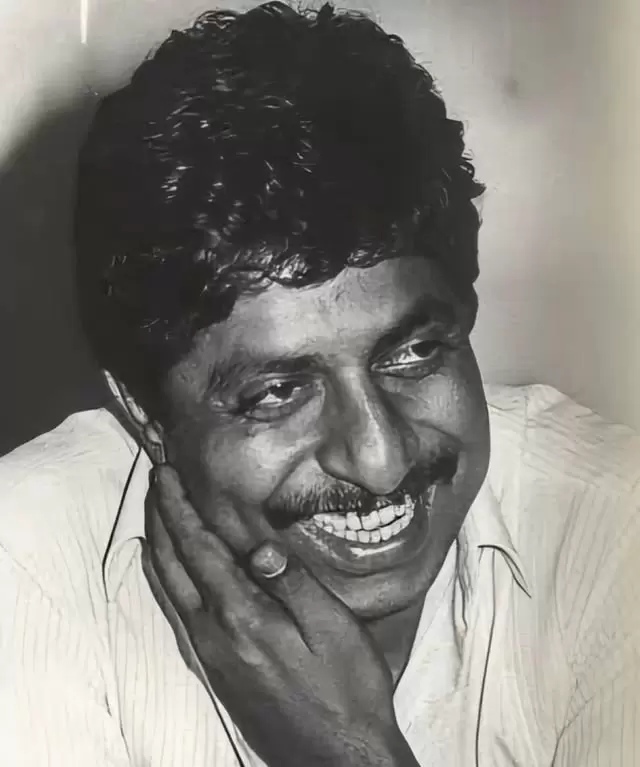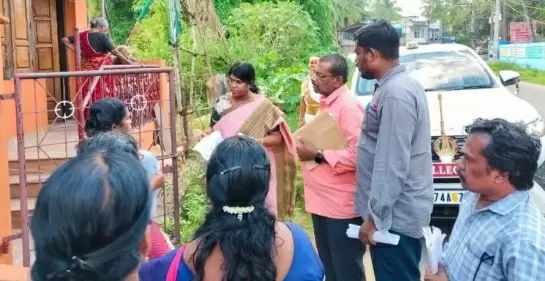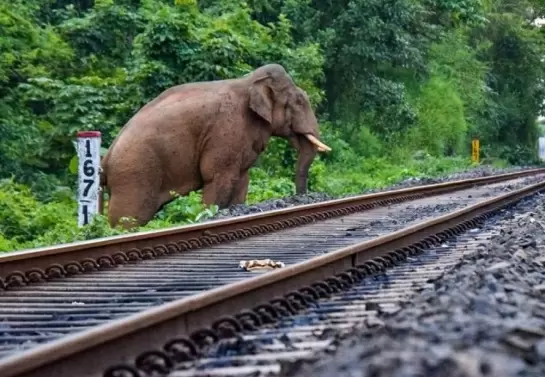Followers of Sikh guru Baba Seechewal are also into cleaning up water bodies
24-March-2012
Vol 3 | Issue 12
“PAWAN GURU, pani pita, mata dharti mahat (Air is the guru, water is father and earth is mother)”, the closing shalok of Japuji Sahib given by first Sikh guru Guru Nanak Dev has a special significance for Punjab. Being the only state of India with a name derived from life-giving rivers, the fertile land has a proud history of being close to nature.
However, the state seems to be literally sullying its name as its water bodies get choked up with industrial waste as well as domestic sewage. The food bowl of India, which nourished the whole nation for decades, has little to cheer about.
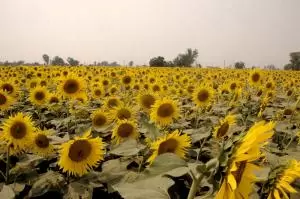 |
|
Sunflowers grown using sewage waste (Photos: GOI Monitor)
|
Thankfully, there are still men like Baba Seechewal, lovingly called 'Eco Baba', who are re-introducing old and valid thoughts into the popular conscience. With followers always ready to join efforts in any social cause, this godman stresses that religion should come out of its temples and serve humanity.
The message of Guru Nanak Dev resonates in the actions of his followers especially when it comes to cleaning up of Kali Bein, a tributary of Beas river. Kali Bein holds a special place in Sikh religion as the first Sikh guru is believed to have received enlightenment after disappearing in its water for three days.
However, rapid urbanisation proved disastrous for the rivulet which gained the attention of Baba Seechewal in the year 2000. Continuous efforts saw the sewage-ridden and weed-choked waters regain their past glory. Not only the accumulated slug has been removed, permanent solution to sewage disposal has also been found.
From mess to greenery
Visit Sultanpur Lodhi, the historical seat of education and religion in Kapurthala district, and you will find a group of men emptying out a large cemented tank of silt with help of a pulley system.
The tank stores the sewage water which is cleaned through sedimentation and decantation process. As the dirty silt settles down at the bottom of the tank, water is diverted to the next reservoir. The dried silt is later used as manure in the fields while water is diverted to 500 acre of agricultural land through an 8-km long underground pipeline thus adding last link to the cycle of production, consumption and regeneration.
Around 72 estimated farmers are using the water which was more of a trouble in the past. Since the sewage water is high on nitrogen content, the usage of fertilisers in these fields has substantially gone down.
“Initially, there was a lot of apprehension among farmers but seeing the results, they could not but trust us. Since we are also offering the labour to lay down the pipeline for free, more farmers now want their fields to be on the supply line. However, there are geographical limitations and also the amount of sewage generated in the town is limited,” explains Satnam Singh, one of the various karsewaks at Baba Seechewal's Nirmal Kuteya ashram.
Ranjit Singh, a young farmer who was the first one to opt for the treated water, says the amount of fertiliser to be used for various crops has reduced by half while several vegetables are growing without needing any supplement.
“Besides, we are also saving precious ground water and electricity to run the motor. Earlier we used to be dependent on power supply whereas the treated sewage water is available 24X7 for free,” he adds.
Though the Sultanpur Lodhi already had a sewage treatment plant, it was not being put to use owing to government apathy. Just like other five towns and 43 villages along the banks of Kali Bein, its sewage water was also being directly routed to the river.
“Cleaning up Kali Bein could not be a permanent solution till the dumping of untreated sewage water was on. This is why the initiative at Sultanpur Lodhi turned out to be a path breaker which was later replicated at Kapurthala and Dasuya towns. In fact, even the treatment plant at Dasuya was set up by the volunteers. The water from this plant is now irrigating fields spread in area of 5 km,” says Gurvinder Singh, another kar sewak.
Replicating the success
Of the 43 villages which used to empty their sewage into the Kali Bein, 35 have now got tanks and ponds which collect the waste for treatment and route it towards agricultural fields. Around 15 other villages have also adopted this approach for waste disposal.
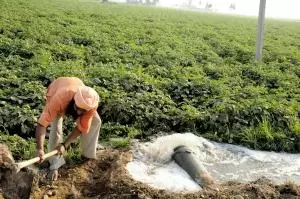 |
|
A karsweak diverting treated sewage water to the fields
|
Ask Baba Seechwal about the initiative and he points towards the traditional community knowledge. “When there was no tapped water and sewerage system, people used to defecate in the fields. In fact, if the planners had incorporated this idea into the modern sewerage system, we would not have been facing such a huge problem of waste disposal,” he says.
An additional benefit of reduction in inflow of sewage into the river has been that the amount of silt which used to settle down on its bed and block pores of the soil has considerably reduced.
This silt used to diminish the recharge capacity of the river resulting in depletion of groundwater in Kapurthala district and excessive water logging in Dasuya-Mukerian in absence of an outlet for surplus ground water. Today, thousands of hectares of agricultural land has been reclaimed in Dasuya-Mukerian while Kapurthala has witnessed a substantial rise in water table.
However, it is not a perfect system still. The water treatment plants in the towns are run by their respective civic bodies which fall short of expectations. “A lot of pressure needs to be exerted on the authorities to keep the system up and running. If given a chance they would again start dumping the waste directly into the river,” says Seechewal.
The scenario in villages is more satisfying since panchayats are deeply involved and people have realised the importance of proper waste disposal.
“The heartening fact is that after the word about first few initiatives spread, villages took upon themselves to work out the recycling process in their areas. They have now started taking pride in their natural resources which I am sure will last longer than misguided policies of the authorities,” says Baba Seechewal. Since religion binds the thoughts here, the optimism does not seem to be misplaced. - GOI Monitor











